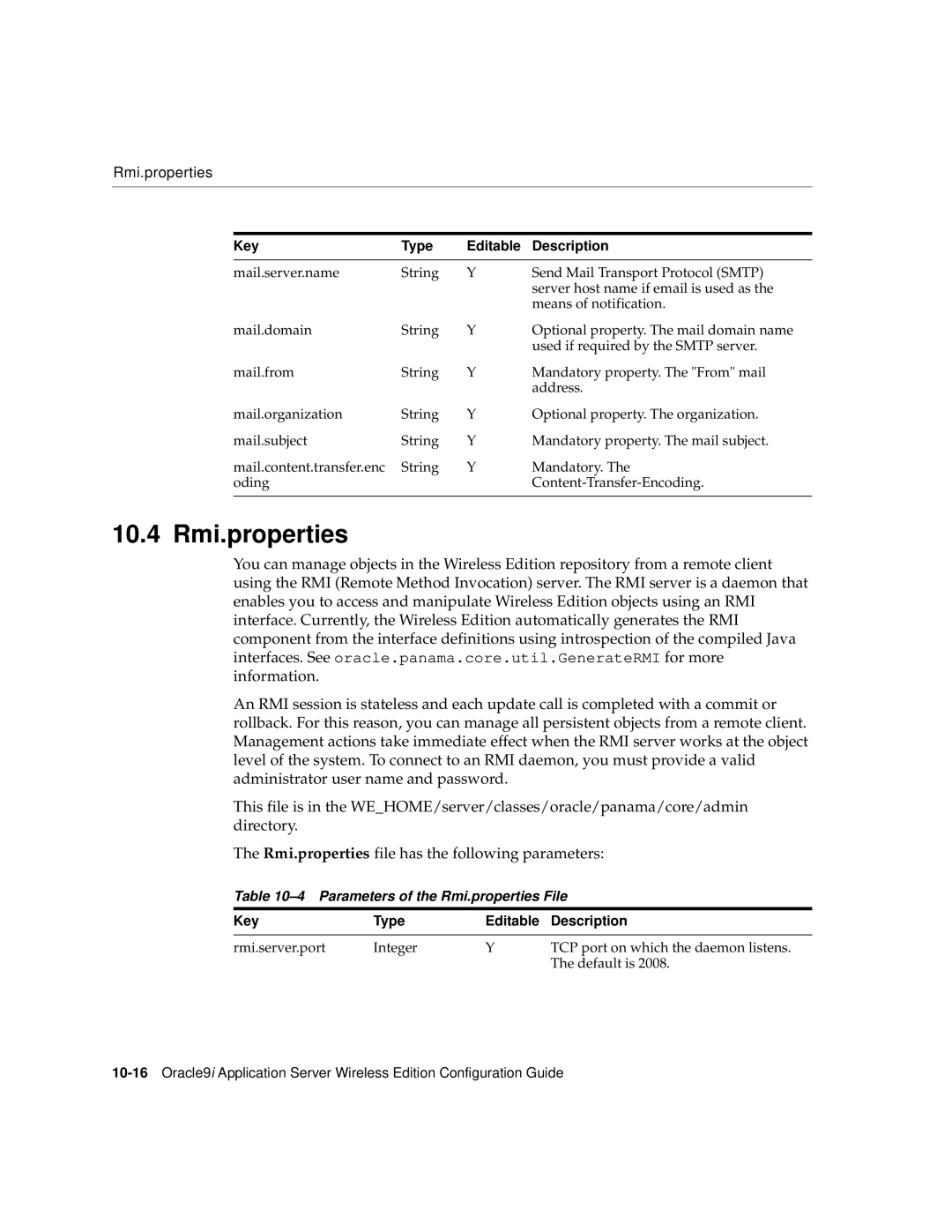
Rmi.properties
Key | Type | Editable | Description |
|
|
|
|
mail.server.name | String | Y | Send Mail Transport Protocol (SMTP) |
|
|
| server host name if email is used as the |
|
|
| means of notification. |
mail.domain | String | Y | Optional property. The mail domain name |
|
|
| used if required by the SMTP server. |
mail.from | String | Y | Mandatory property. The "From" mail |
|
|
| address. |
mail.organization | String | Y | Optional property. The organization. |
mail.subject | String | Y | Mandatory property. The mail subject. |
mail.content.transfer.enc | String | Y | Mandatory. The |
oding |
|
| |
|
|
|
|
10.4 Rmi.properties
You can manage objects in the Wireless Edition repository from a remote client using the RMI (Remote Method Invocation) server. The RMI server is a daemon that enables you to access and manipulate Wireless Edition objects using an RMI interface. Currently, the Wireless Edition automatically generates the RMI component from the interface definitions using introspection of the compiled Java interfaces. See oracle.panama.core.util.GenerateRMI for more information.
An RMI session is stateless and each update call is completed with a commit or rollback. For this reason, you can manage all persistent objects from a remote client. Management actions take immediate effect when the RMI server works at the object level of the system. To connect to an RMI daemon, you must provide a valid administrator user name and password.
This file is in the WE_HOME/server/classes/oracle/panama/core/admin directory.
The Rmi.properties file has the following parameters:
Table 10–4 Parameters of the Rmi.properties File
Key | Type | Editable | Description |
|
|
|
|
rmi.server.port | Integer | Y | TCP port on which the daemon listens. |
|
|
| The default is 2008. |
